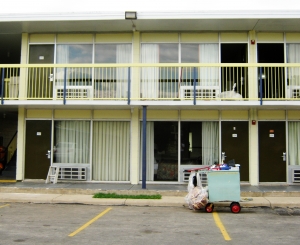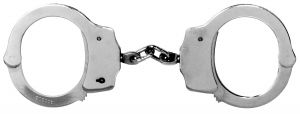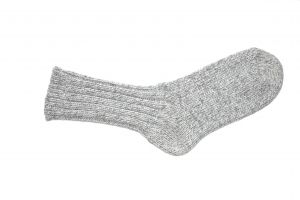Attorney J. Bradley Smith answering the question: “What are the long term effects of being convicted of a crime?”
In a horrible case that reveals the serious criminal penalties that can be faced by even young children, police in Charlotte say they have charged an 11-year-old boy in connection with the death of his brother. Police say the 11-year-old has been charged with felony child abuse, though his charges will be handled as part of the juvenile justice system.
 So far police have not released the boy’s name, but say that he faces criminal charges after supposedly dropping his infant brother on his head repeatedly until he died. The case began this past weekend when police were called to a home in Charlotte, NC where they discovered a seven-month-old boy unresponsive. The child was rushed to Carolinas Medical Center, where he was pronounced dead.
So far police have not released the boy’s name, but say that he faces criminal charges after supposedly dropping his infant brother on his head repeatedly until he died. The case began this past weekend when police were called to a home in Charlotte, NC where they discovered a seven-month-old boy unresponsive. The child was rushed to Carolinas Medical Center, where he was pronounced dead.
Police investigators quickly realized that the baby’s poor health was not accidental but instead the result of physical abuse. They quickly zeroed in on the boy’s 33-year-old mother, Wendy Johnson, as the culprit, a decision that relatives say was an unfair rush to judgment. Wendy was ultimately charged with involuntary manslaughter and child abuse.
Then earlier this week relatives of the deceased infant approached reporters with a local news station and said that the person responsible for the boy’s death was the 11-year-old brother. Relatives said that the brother admitted to family members that he beat the child because he was jealous of the attention he was receiving and because the little boy would not stop crying.
These relatives also said that at the time of the abuse, Wendy was not even at home but had left to run a 45-minute errand. When the mother returned to the house she discovered her young son dead in his crib.
 Charlotte Criminal Lawyer Blog
Charlotte Criminal Lawyer Blog










 Prosecutors say that Joseph Anthony Mitchell decided to reject a plea deal that he had been offered late last week and instead pled not guilty to one count of first-degree murder and two counts of attempted first-degree murder. After his rejection of the plea deal, his case will now move forward to a full criminal trial, which is currently scheduled for March. Prosecutors have revealed that they will not seek the death penalty in the case.
Prosecutors say that Joseph Anthony Mitchell decided to reject a plea deal that he had been offered late last week and instead pled not guilty to one count of first-degree murder and two counts of attempted first-degree murder. After his rejection of the plea deal, his case will now move forward to a full criminal trial, which is currently scheduled for March. Prosecutors have revealed that they will not seek the death penalty in the case. An official with the Rock Hill Police Department says that 76 warrants have been taken out against Paul Fuller and Travis Alston, all related to burglaries committed in the area. The warrants are voluminous and include everything from second-degree burglary, criminal conspiracy, grand larceny and, unusually, safe cracking.
An official with the Rock Hill Police Department says that 76 warrants have been taken out against Paul Fuller and Travis Alston, all related to burglaries committed in the area. The warrants are voluminous and include everything from second-degree burglary, criminal conspiracy, grand larceny and, unusually, safe cracking. Authorities say that Cuthrell, minister of music at Gospel Shepherd Baptist Church, poured oil and gasoline across his rental home and set it on fire to avoid pressing financial obligations. At his sentencing, Cuthrell spoke out saying he was ashamed and embarrassed about his behavior, claiming that it was the most irrational decision of his life.
Authorities say that Cuthrell, minister of music at Gospel Shepherd Baptist Church, poured oil and gasoline across his rental home and set it on fire to avoid pressing financial obligations. At his sentencing, Cuthrell spoke out saying he was ashamed and embarrassed about his behavior, claiming that it was the most irrational decision of his life. Police officials say the current sweep focused in on 22 people and was designed to reduce violent crime in the surrounding areas. Police officers in Charlotte worked in conjunction with federal agents to nab the suspected criminals, beginning their undercover operation earlier in the summer. Authorities say they targeted individuals who were selling drugs or that were known to possess or sell weapons.
Police officials say the current sweep focused in on 22 people and was designed to reduce violent crime in the surrounding areas. Police officers in Charlotte worked in conjunction with federal agents to nab the suspected criminals, beginning their undercover operation earlier in the summer. Authorities say they targeted individuals who were selling drugs or that were known to possess or sell weapons. The changes come a year after the ACLU launched an investigation into the actions of the department following complaints that the supposed seat belt checkpoints were actually being used to target Latinos. The ACLU said that they received information that at one checkpoint alone, 15 undocumented immigrants were detained and ultimately taken into custody. Thankfully charges against 10 of those arrested were eventually dropped.
The changes come a year after the ACLU launched an investigation into the actions of the department following complaints that the supposed seat belt checkpoints were actually being used to target Latinos. The ACLU said that they received information that at one checkpoint alone, 15 undocumented immigrants were detained and ultimately taken into custody. Thankfully charges against 10 of those arrested were eventually dropped. The mayor of Durham has responded to the results, saying that he is instituting an investigation into what appears to be clear evidence of racial profiling by police officers. The action was all prompted by the release of a University of North Carolina study that showed how blacks and Hispanics across the state were vastly more likely to be searched following a traffic stop than their white counterparts, something that has alarmed criminal defense attorneys as well as civil rights advocates.
The mayor of Durham has responded to the results, saying that he is instituting an investigation into what appears to be clear evidence of racial profiling by police officers. The action was all prompted by the release of a University of North Carolina study that showed how blacks and Hispanics across the state were vastly more likely to be searched following a traffic stop than their white counterparts, something that has alarmed criminal defense attorneys as well as civil rights advocates. According to the
According to the  Police say Edwards faces charges of second-degree forcible sex, sexual acts with a student, taking indecent liberties with a minor and crimes against nature. The charges relate to incidents that occurred between 2009 and 2011 when Edwards is accused of molesting at least three boys between the ages of 11 and 14. One of the cases involved a middle schooler who was allegedly attacked while his parent sat just outside the door in the waiting area.
Police say Edwards faces charges of second-degree forcible sex, sexual acts with a student, taking indecent liberties with a minor and crimes against nature. The charges relate to incidents that occurred between 2009 and 2011 when Edwards is accused of molesting at least three boys between the ages of 11 and 14. One of the cases involved a middle schooler who was allegedly attacked while his parent sat just outside the door in the waiting area. Woodall says that he hopes the trail he is blazing serves as a lesson to other prosecutors and says he hopes other states will follow his attempt at curbing improper agent conduct. Woodall says the activity can be quite harmful to athletes and athletic institutions in the long run and that too many law enforcement officials allow it go on with only a wink and a nod. Woodall says the law is the law and he intends to vigorously uphold it.
Woodall says that he hopes the trail he is blazing serves as a lesson to other prosecutors and says he hopes other states will follow his attempt at curbing improper agent conduct. Woodall says the activity can be quite harmful to athletes and athletic institutions in the long run and that too many law enforcement officials allow it go on with only a wink and a nod. Woodall says the law is the law and he intends to vigorously uphold it.